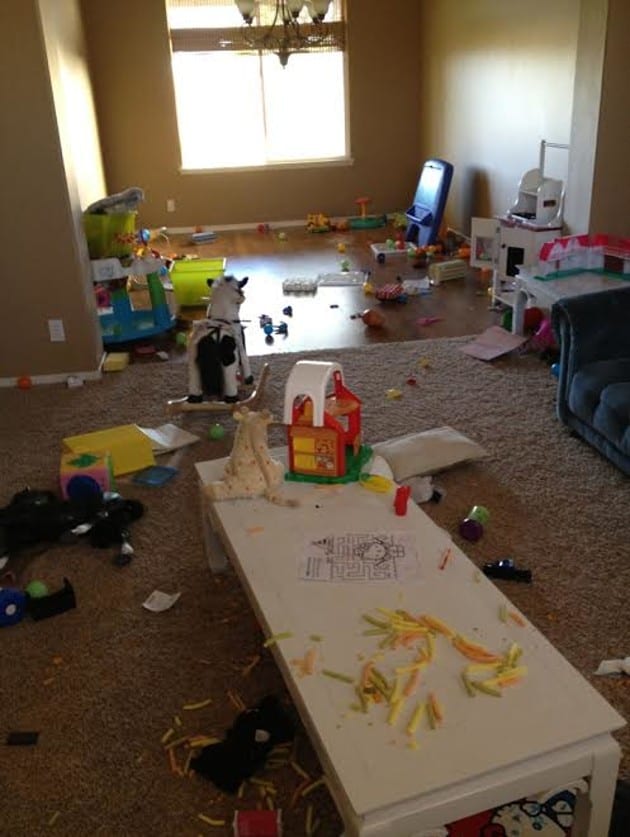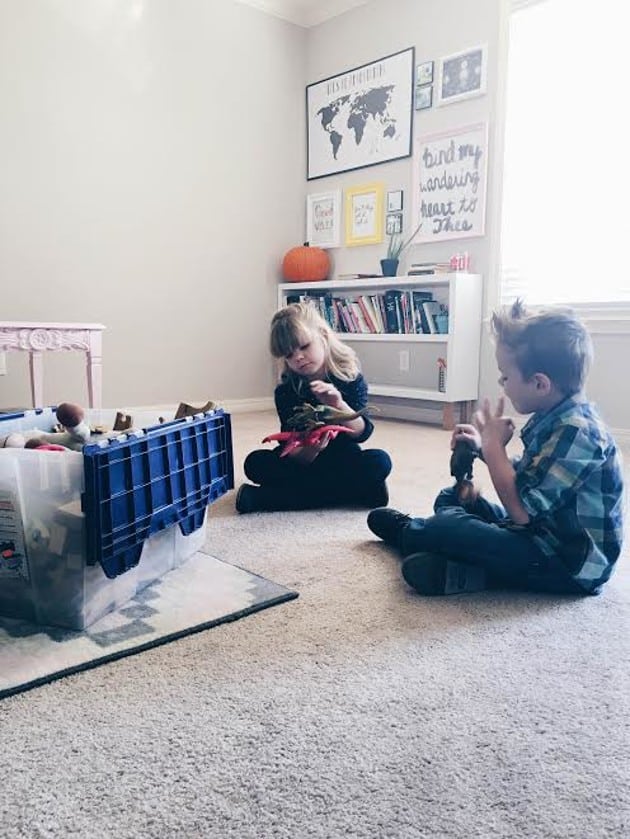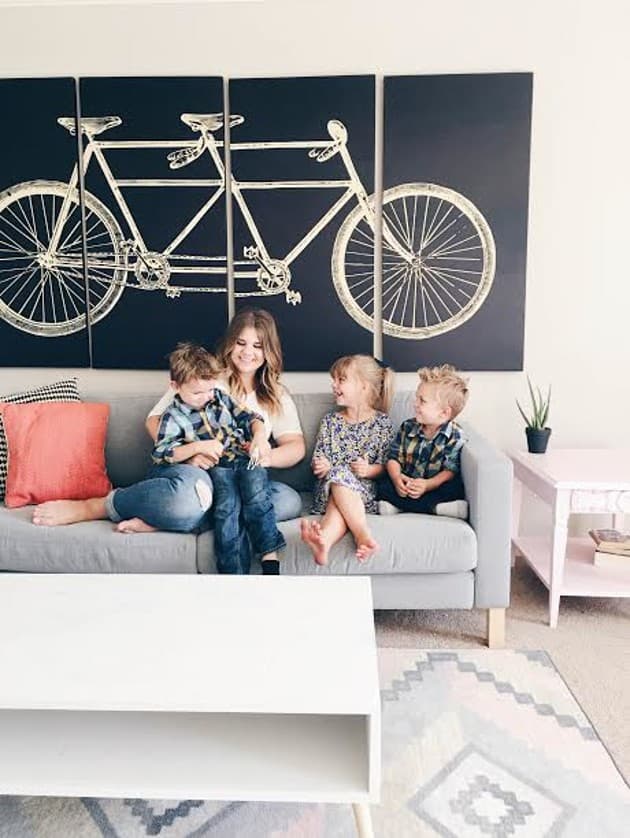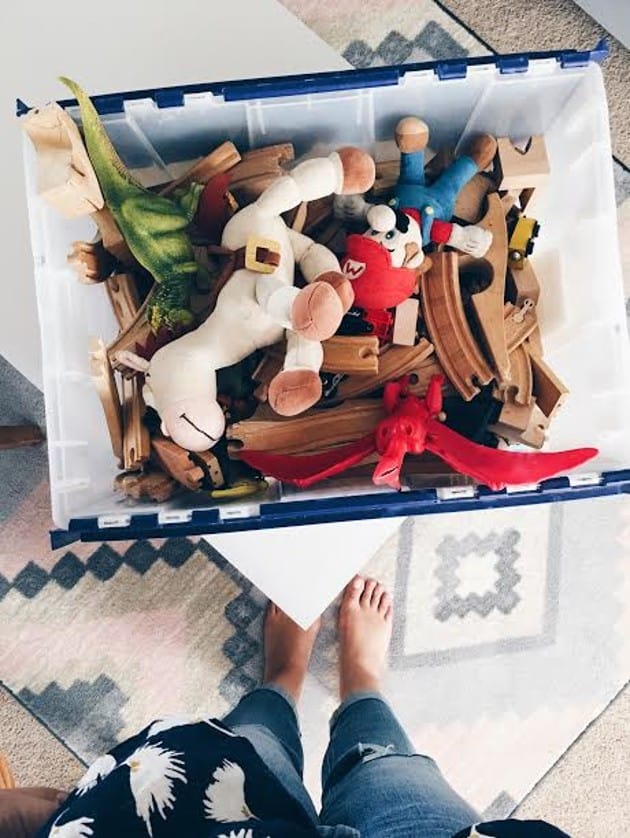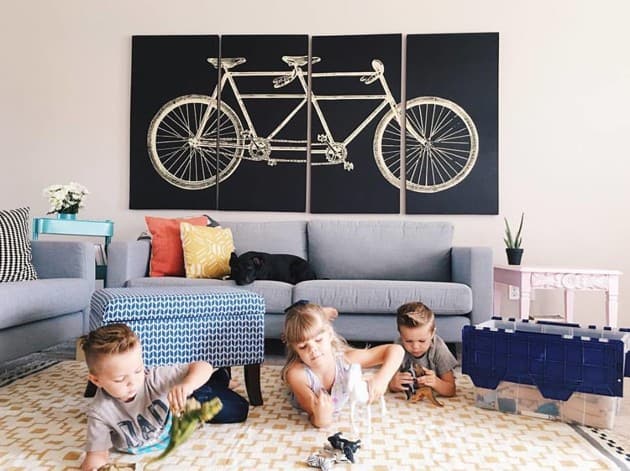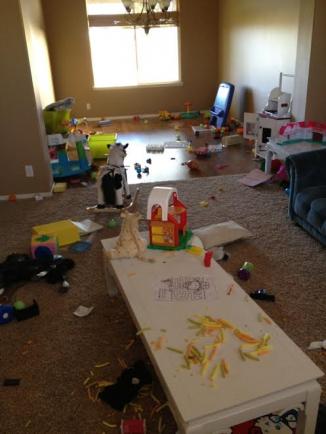
Allie Casazza was drowning in the clutter of her kid's toys. Toys were everywhere- overflowing out of several bins in the toy room and tossed aside in every nook and cranny throughout the house. In an interview with FamilyShare, Allie recounted how she was overwhelmed, fighting with her husband and struggling with depression.
"I found myself sending my kids away to be busy and play so I could catch up on everything. But they would come out of the toy room five minutes later, bored."
The toy room wasn't serving its purpose. Allie reached her peak stress level and decided to purge her kid's toy room of all the useless toys. One night, she put her kids to bed and cleared out the toy room, keeping only what was purposeful- like building blocks, trains and puzzles. Everything else was donated.
Allie admits she was nervous her kids would be upset when they found out their toys were gone. The next morning, she made them breakfast and sent them off to play. Allie's oldest daughter, three years old at the time, thanked her mom for cleaning the toy room and had finally found a toy she had been looking for a while.
"They played like normal for over two hours," Casazza said. Seeing her children play with each other and have more fun with less toys, she felt like she was onto something.
In fact, Allie was onto something. Studies have been done that show a direct link between clutter and your stress level. Researchers at the Princeton University Neuroscience Institute found that clutter distracts and prevents you from being able to focus on the things you need to and increases your stress level. The solution to this problem is getting rid of the clutter. Living and working in a clean environment will allow you to focus more and not stress. Allie witnessed the results of this study first hand, without even knowing the scientific reasons behind it at the time. It was something she had experienced for herself.
"When you have less, you're less stressed and much happier."
In the weeks and days after Allie's first purge, she started seeing things change not only with her kids, but with herself and her marriage.
"Everything was much lighter. Everything shifted, everything was affected," she said. "How I was spending my day was completely turned upside down. It made me a happier person, and I had more free time to spend with my kids."
There was less to do, less to clean and less clogging up her physical space. She felt like she had room to breathe and the absence of toys led to a cleaner house and made it so she actually had the time and willingness to work on the things she needed to. This change allowed Allie to homeschool her kids, something she had wanted to do for a while but wasn't able to until the clutter was gone from her home.
It also had a surprising effect on Allie's marriage. "We started spending every evening together instead of bickering."
Allie and her husband would frequently fight over the mess in the house, how he wasn't helping with the kids and other things. They had little time for each other and every time they did, it just ended in a fight. When the mess and the clutter of toys was gone, everyone was happier and Allie and her husband were able to improve their relationship with each other and strengthen their marriage.
"Every night was a date night," she said.
In order to preserve this happy, clutter-free environment the Casazza family had created, Allie and her husband decided they would make a change in what gifts and presents their children would receive.
"We hold back on what we personally get them." Like all other children, Allie's kids love toys. As parents, Allie and her husband can't prevent friends and family from giving their children toys, so her solution is to keep the amount of toys balanced between other things in their home.
"We have one toy bin. If it starts to overflow, we work with the kids to reevaluate and see what they still play with and what they don't. Kids will communicate what they do and don't want. They're part of the donation process and know that it's doing good for other people. It's less about how many toys you get and more about doing a check and asking them what they don't play with anymore. Minimalism is a part of their life."
After seeing the positive effects of less toys and clutter in her household, Allie started an online course where she teaches parents how to purge their entire home and significantly reduce the clutter and stress in their lives. "Hundreds have done this and it works. There hasn't been a single person who has said it hasn't worked for them."
Allie advises that parents don't get rid of children's toys if their children are over the age of 3. They may feel violated and it will make them panicked and turn them off to the idea of giving toys away to children who need them.
"Work with them. Teach them empathy rather than telling them you're getting rid of their stuff. It feels like a punishment."
By teaching your kids about donating the toys they don't play with to children who don't have any toys and will play with them, their perspective and focus changes from getting rid of their toys to being a good person.
"Kids do so much better with less clutter," Allie emphasizes. "They thrive when they have empty space to fill their imaginations. Toys do the opposite of entertaining them. Without so many toys, their imaginations reawaken."
Have you purged your children's toys? Let us know how it affected your family in the comments below!

